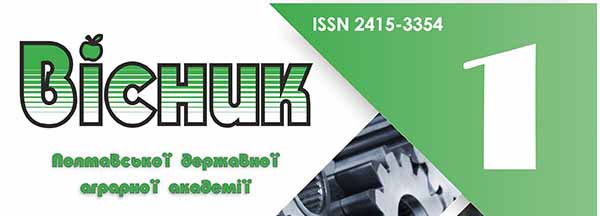DIAGNOSTIC VALUE OF INTEGRATED IMMUNE-HEMATOLOGICAL INDICES AS MARKERS OF ACUTE STRESS IN HENS
DOI:
https://doi.org/10.31210/visnyk2021.04.20Keywords:
hens, environmental factors, integrated immune-hematological indices, immunological reactivity, stressAbstract
The results of studying the information of integrated immune-hematological indices as markers of acute stress in hens with short-term negative effects of environmental factors are presented. For this purpose, in the conditions of a modern complex on food eggs production, 3 groups of hens were formed, each of which was kept in a separate cage-analogue as to the area and equipment. At the age of 52 weeks, 10 blood samples were taken from hens of each of the 3 groups, from which the control group was formed. In the future, each group was exposed to negative environmental factors. In particular, the hens of the 2nd group were deprived of feed, the 3rd group – of light, and in the 4th group, hens were kept with a significant overcrowding. Blood samples were taken 24 hours after the factors’ impact onset and integrated immune-hematological indices were calculated based on hemogram parameters. It has been shown that a comprehensive assessment of integrated immune-hematological indices based on extended total blood test is informative in assessing the development and severity of stress in hens due to short-term effect of adverse environmental factors. Under the influence of negative environmental factors, regardless of their nature, there was an increase in the indices of leukocyte shift, immune reactivity, heterophils to lymphocytes ratio, lymphocytes to ESR ratio, heterophils to monocytes ratio, lymphocytes to monocytes ratio and lymphocytes to eosinophiles ratio. This indicates a shift of the leukocyte formula to the left, the predominance of nonspecific protective cells, which occurs due to the functional increase in the proliferative activity of bone marrow and is expressed in increased heterophils, their increased activity in the microphage-macrophage immune response system and indicates the presence of high levels of endogenous intoxication in the body and impaired immunological reactivity; this can also inform about the autoimmune nature of the pathological process. At the same time, there was a decrease in lymphocyte-granulocyte, total and leukocyte indices, which confirms the shift of the leukocyte formula to the left and indicates the dominance of cell activation of the immune system, shows an active adaptive response of white blood and reduced nonspecific anti-infection protection as a result of intoxication, as well as reflects hypertensive reactions of immediate type over delayed type reactions. In addition, a simultaneous increase in the leukocyte shift index and a decrease in the lymphocyte-granulocyte index indicate the development of endogenous intoxication in hens and impaired immunological reactivity due to autointoxication of the body during the destruction of its own cells. Also, differences in the degree of immunological disorders based on the blood indices of hens depending on the nature of the influencing factor were revealed.

 Creative Commons Attribution 4.0 International Licens
Creative Commons Attribution 4.0 International Licens